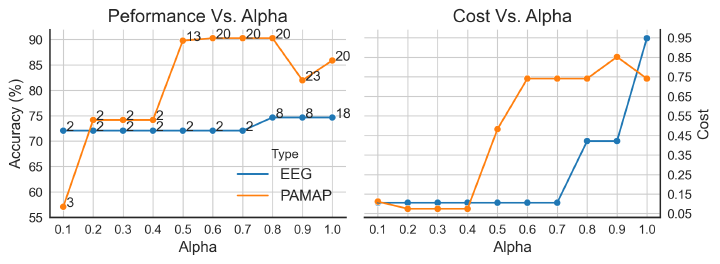
Abstract
Sensor channel selection is an important optimization problem in resource-constrained wearable systems with the goal of identifying an optimal set of input sensors for efficient machine learning. We introduce a framework for this optimization problem, mathematically formulate the minimum-cost channel selection (MCCS), and propose two novel algorithms to solve the problem. Branch and bound channel selection finds a globally optimal channel subset and the greedy channel selection finds the best intermediate subset based on our proposed penalty function. These proposed channel selection algorithms are conditioned with both performance and the cost of the channel subset. We evaluate both algorithms on two publicly available time series datasets for activity recognition and mental task classification. Branch and bound channel selection achieve a cost saving between 92.6% and 95.7%, and the greedy approach reduces the cost between 51.8% and 91.4%, for performance thresholds of 50% and 70%.